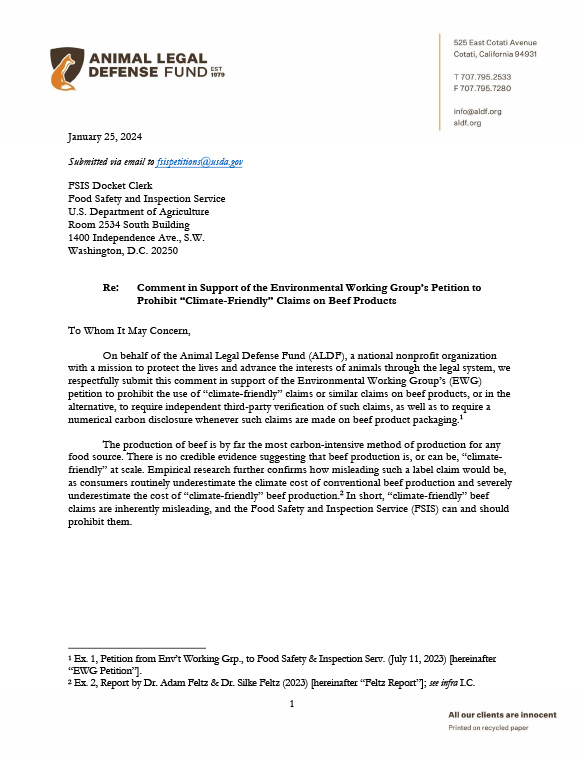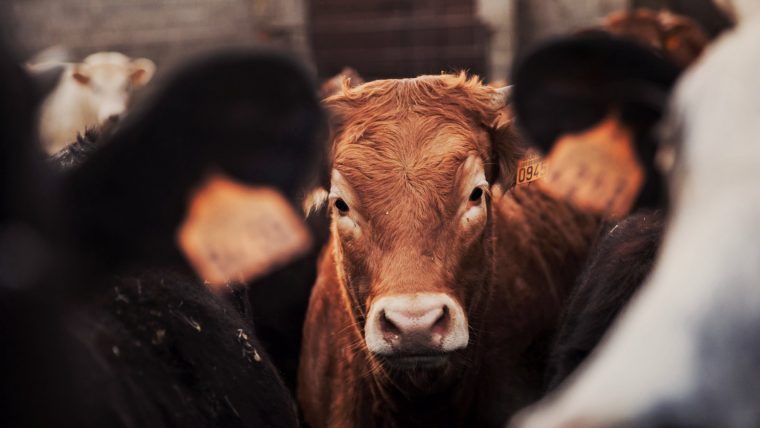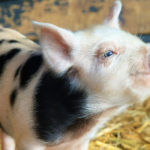
Urging FSIS to ban use of ‘climate-friendly’ claims on beef products
Submitted comments in support of EWG petition
Status
Next Step
FSIS to respond to petition
On January 23, 2024, the Animal Legal Defense Fund submitted comments to the U.S. Department of Agriculture’s (USDA) Food Safety and Inspection Service (FSIS) in support of the Environmental Working Group’s (EWG) petition to prohibit the use of “climate-friendly” claims or similar claims on beef products, or in the alternative, to require independent third-party verification of such claims, as well as to require a numerical carbon disclosure whenever such claims are made on beef product packaging.

The comments highlight the fact that consumers increasingly care about the sustainability of food products, as indicated by empirical evidence. A recent study by researchers at the University of Oklahoma (known as the Feltz Report) found that the vast majority of consumers — 95.2% of participants surveyed — prefer climate-friendly products if given the option. Consumer Reports surveys likewise have confirmed that environmental concerns are important to food shoppers, and that consumers understand various claims — including vague ones — as carrying environmental meaning. Notably, consumers are also willing to pay more for products that are better for the climate. On the other hand, a national survey conducted by the Johns Hopkins Bloomberg School of Public Health’s Center for a Livable Future found that eight out of 10 respondents expressed concern about environmental problems caused by factory farms.

As consumer demand for environmentally friendly products has increased, so too have misleading “greenwashing” claims. In the last decade, this has been especially true in the meat and dairy industries. As evidence mounted and public awareness increased regarding the climate impacts of industrial animal agriculture, companies such as JBS, the largest meat producer in the world, disseminated misleading “net zero” claims that were purely aspirational. Similarly, restaurants such as Chipotle and McDonald’s have capitalized on dubious “sustainable” claims.
Despite these greenwashing claims, all credible evidence suggests that beef production is far and away the most carbon intensive protein option there is. Even so-called “climate-friendly” and “low-carbon” beef is more carbon intensive than any other food product. Yet research demonstrates that consumers are confused by companies’ claims about so-called “climate-friendly” beef; the Feltz Report found that the addition of such label claims increases the error of estimation, meaning consumers are less informed and more likely to be misled because of these claims. For these empirically supported reasons, the Animal Legal Defense Fund’s comments argue that “climate-friendly” beef claims are inherently misleading and should be prohibited.
Meat requires more land, water, and energy than any other source of protein. Animal farming currently occupies more than a third of the world’s habitable land area, is responsible for 30% of current global biodiversity loss, and accounts for 20% of global freshwater use. Despite its colossal environmental impact, meat and dairy provide a mere 18% of calories consumed, making their production incredibly inefficient in addition to inhumane. Scientists have cited reducing meat consumption in high-income countries such as the United States as a prerequisite in order to mitigate the global impacts of climate change. However, global meat consumption is projected to double from 2000 to 2050.
The Animal Legal Defense Fund’s comments argue that third-party verification can improve the reliability and trustworthiness of greenhouse gas emissions claims, given the lack of transparency of “climate-friendly” or “low-carbon” claims made by beef producers, and emissions disclosures have been shown to improve consumer understanding of the carbon cost of food choices. The lack of scientific consensus on how to measure the types of emissions reductions that beef producers are alleging means that USDA should require concrete substantiation from companies to ensure that consumers are not misled, or that represented claims are not unsubstantiated. These requirements would be the bare minimum to help ensure that consumers are not grossly misled by assertions of environmental friendliness from the most greenhouse-gas-emitting production process of all food choices.
What action has been taken? The Animal Legal Defense Fund submitted comments in support of the EWG petition to prohibit the use of “climate-friendly” claims or similar claims on beef products, or in the alternative, to require independent third-party verification of such claims, as well as to require a numerical carbon disclosure whenever such claims are made on beef product packaging.
Why this proposed rule is important: Growing public awareness of climate change and its causes have led consumers to demand more sustainable, environmentally friendly products. However, nowhere is the greenwashing of food production more misleading than in the beef industry. Raising cows for human consumption is an unavoidably climate-intensive process, and is by no reasonable metric “climate-friendly.” Despite this, FSIS approved the first beef product label containing a “climate-friendly” claim. The claim has been approved for products sold under Tyson’s “Brazen Beef” product line, for which the company claims a 10% reduction in greenhouse gas emissions compared to conventionally produced beef.
Sign Up!
Join the Animal Legal Defense Fund's email list to stay up to date on lawsuits, legislation, and regulations affecting animals.

